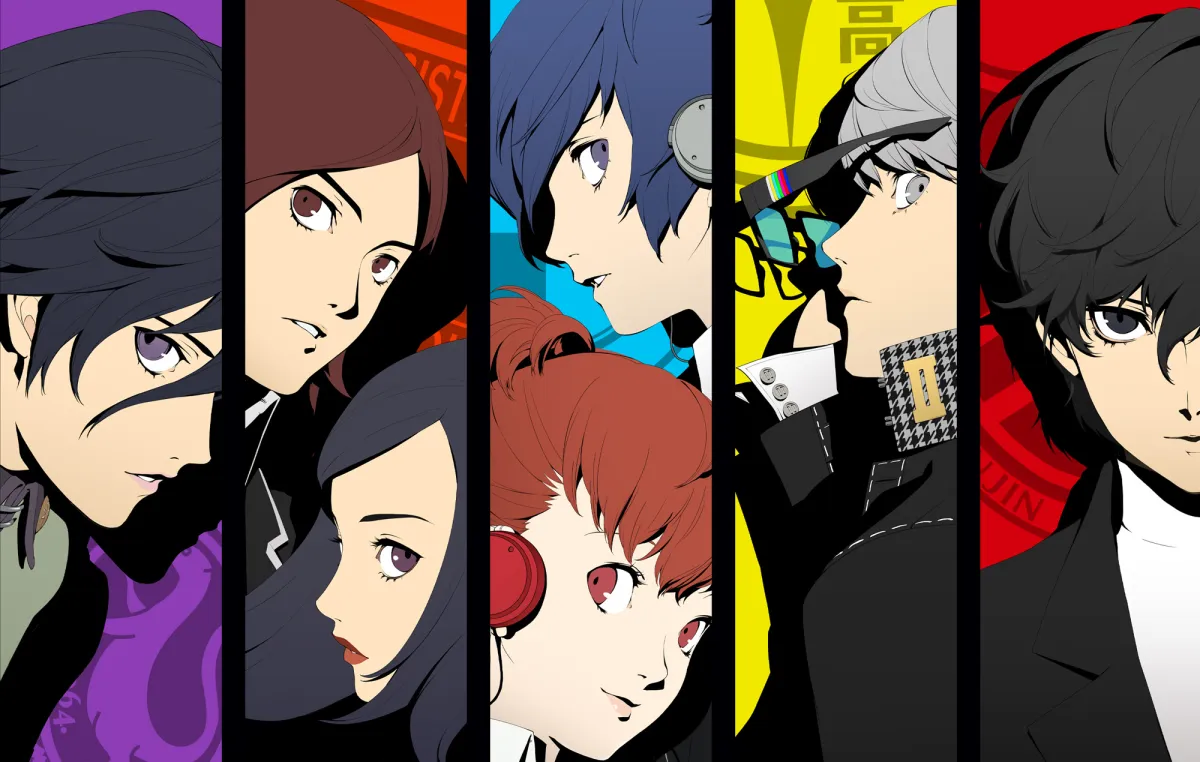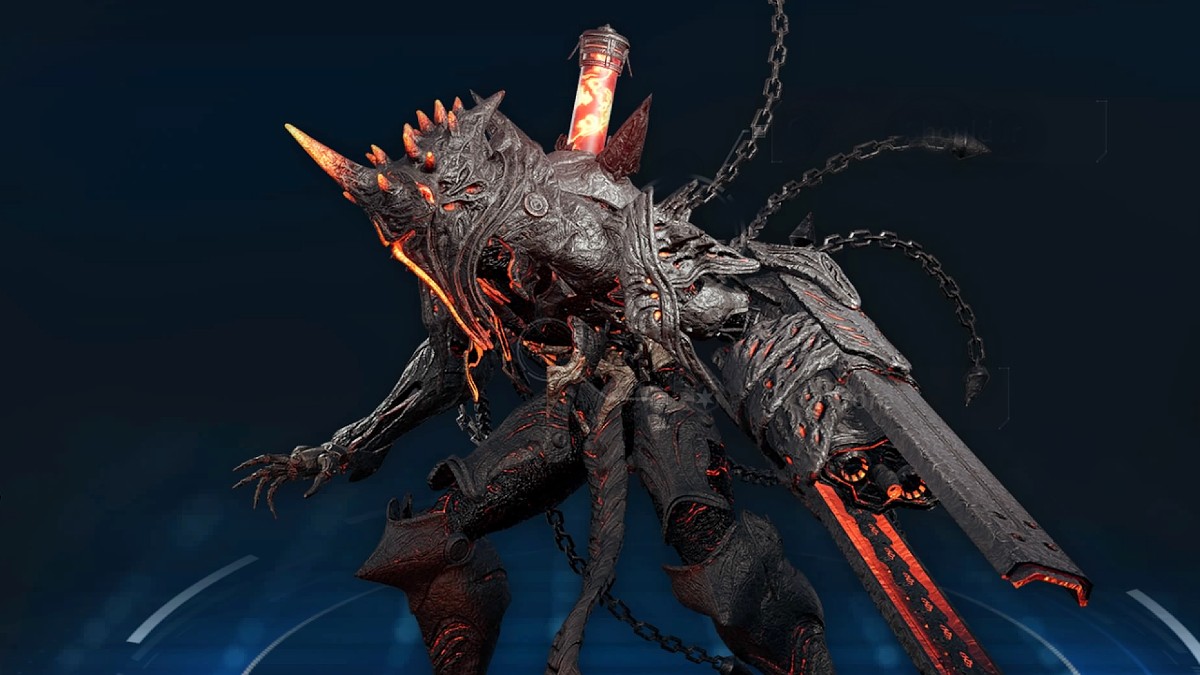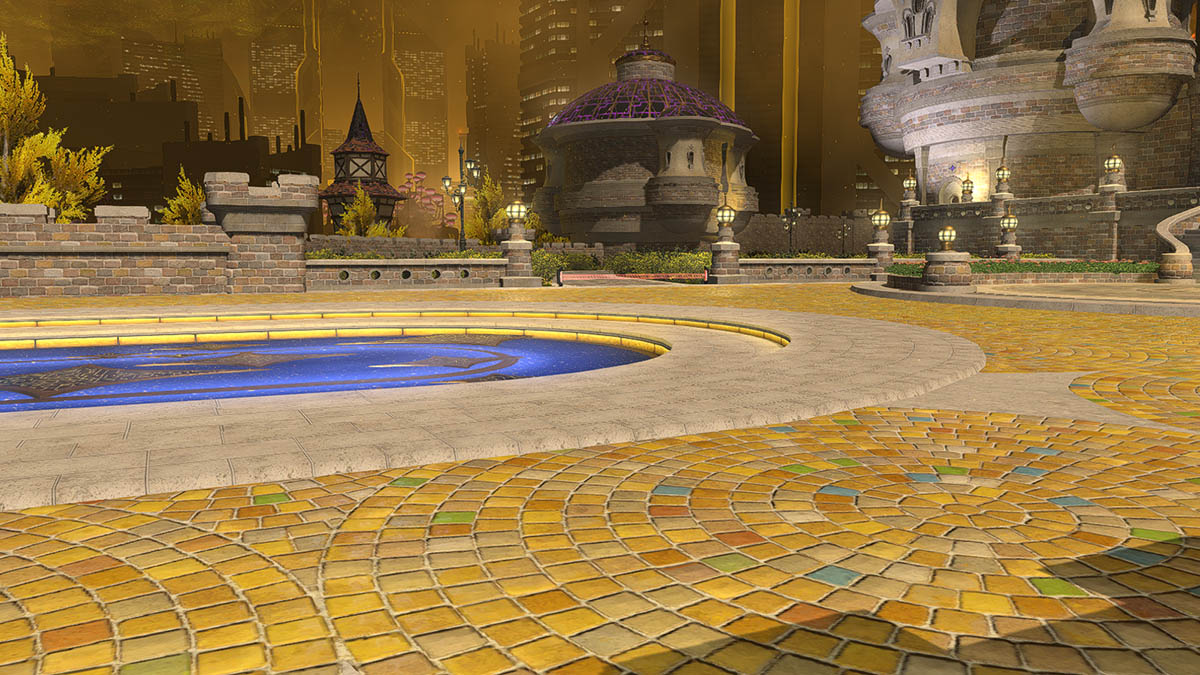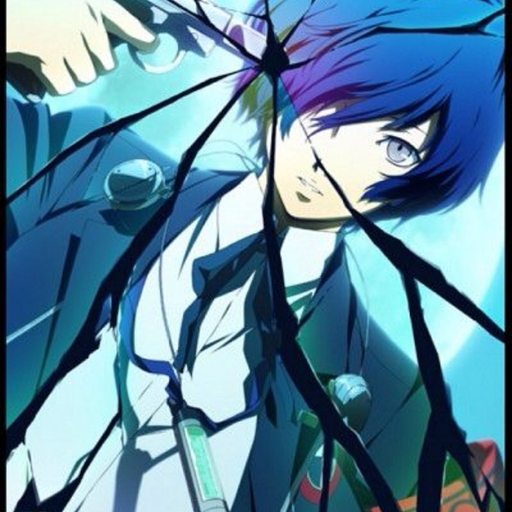There are a ton of different Persona games, and of course that means we’re going to be ranking all of them from worst to best.
Spinning off from Atlus’ Shin Megami Tensei franchise, the Persona series has been slowly becoming the premier modern-day RPG series. Despite only having five (technically six) mainline entries over the course of 25 years, each of the main entries has received critical acclaim. And of course, like with any major franchise, there are spinoffs galore, including films, anime, audio dramas, and yes, plenty more video games.
These are purely our opinions, and if you disagree with them, go ahead and say in the comments where you think some of these entries belong.
Related: Persona 5’s Most Hated Confidant Deserves More Love
All of the Persona Games Ranked
16) Persona 5: Dancing in Starlight (PS Vita, PS4)
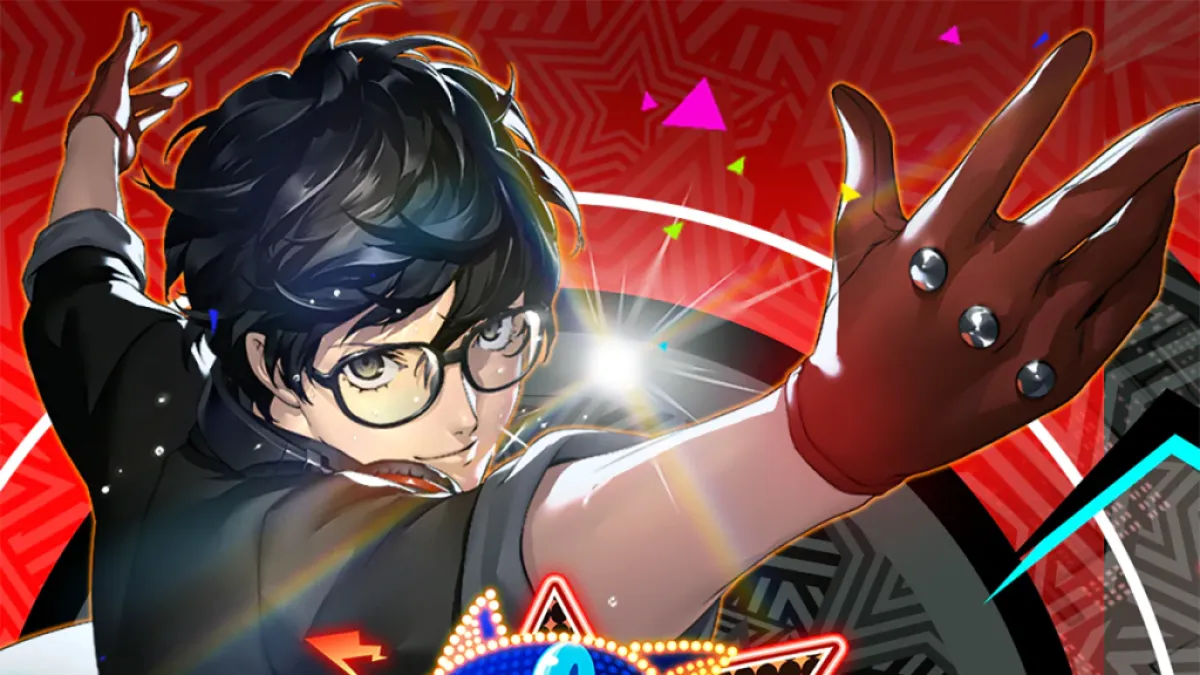
Giving Persona a music subseries isn’t inherently a bad idea. All of the games have excellent soundtracks thanks in recent times to Shoji Meguro’s guiding hand. The problem with all of the Dancing entries is that whatever music each game can claim is stretched to the absolute limits, remixing only a handful of songs multiple times until you’re sick of them.
The repetitive nature of Dancing in Starlight is made even worse when this game and its sister entry, Persona 3: Dancing in Moonlight, are the exact same in terms of structure, making playing them back to back a mind-numbing chore. Add in some extremely watered-down visual novel dialogue sequences that openly exist as inconsequential what-if scenarios, and this game will test even the most diehard Persona fans. As such, Persona 5: Dancing in Starlight is at the bottom of this ranked list of games in the series.
15) Persona 3: Dancing in Moonlight (PS Vita, PS4)

A lot of the same criticisms aimed at Dancing in Starlight apply here, which is why it is ranked so low among all the Persona games. The soundtrack is limited and repetitive, the visual novel sequences are lazy, and the game will have you completing so many pointless challenges for meaningless extra content. Seriously, putting your characters in wacky costumes means nothing if you’re focused on the music notes emanating away from them.
There are only a few exceedingly small strengths that Dancing in Moonlight has. First, the game opted to create new HD character models for the Persona 3 cast, which look gorgeous and make me wish that we actually got a full remake of Persona 3. Also, the soundtrack does have slightly more variety thanks to there being two soundtracks to split between the male and female protagonists (thank you, Persona 3 Portable). It’s not much, but it’s enough to make this entry slightly more palatable than its peer.
14) Persona 4 Arena (PS3, Xbox 360)

Serving as a mild crossover between Persona 3 and Persona 4, the fighting game Persona 4 Arena served as the jumping-off point for future Persona spinoffs thanks to the success that it had upon release. Since this was done by Arc System Works, the game looks wonderful even today, and seeing an aged-up Persona 3 cast tickles my fancy.
However, with a relatively limited roster of 13 characters, there’s not a lot of variety in terms of gameplay, and its sequel outshines it in virtually every way. So while not bad for its time — it was one of the featured games at the Evo 2013 fighting game tournament — it’s entirely unnecessary to play when there are much better fighting games available.
13) Persona Q: Shadow of the Labyrinth (3DS)

As a fusion of the Persona series and Etrian Odyssey series, Persona Q is good but lacks a lot of impact. It’s a crossover between Persona 3 and Persona 4 with most of the game taking place in first-person dungeons where you’re expected to map out the dungeons yourself, while fighting enemies using the standard Persona combat system. It’s all fine on paper, but unless you’re really into old-school RPGs where drawing your own map was a requirement to progress, the pacing can be uneven.
While the game itself is fun enough, the lack of a meaningful plot cements it as more of a “what-if” scenario than anything meaningful and worthwhile, and you may not even see it through to the end owing to its occasionally brutal difficulty. It is nice to have a Persona game on the 3DS, but it would be outshined later on by its more advanced sequel.
12) Persona 4 Arena Ultimax (PS3, 360, PS4, Switch, PC)
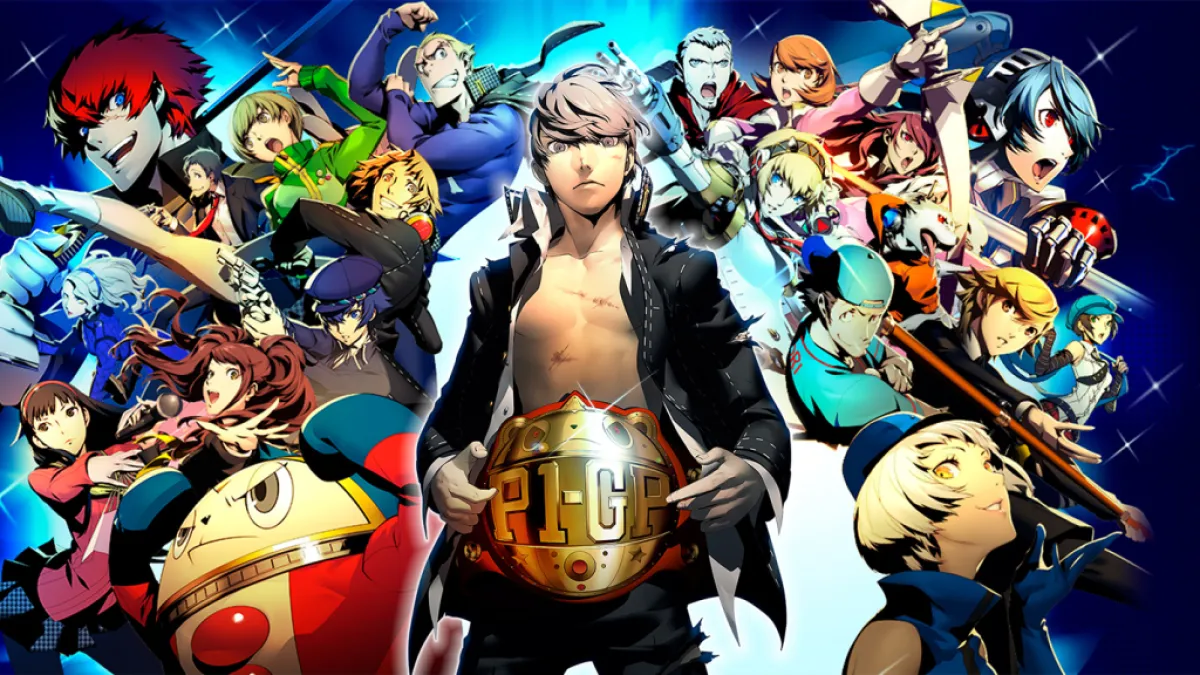
Take everything that worked in Persona 4 Arena and just add more. The roster is expanded with eight new characters, including everyone’s favorite detective Adachi and several “shadow types” that function as palette swaps with unique abilities. This almost triples the roster from Persona 4 Arena and continues the story from that game, which again is simple yet enjoyable and allows us to see more of the older Persona 3 cast.
Like Persona 4 Arena, Ultimax has also been to Evo, and it received a remaster in March 2022. In ranking all the Persona games, it’s easy to see why Ultimax stands atop its predecessor, giving it a higher spot on this ranked list of games in the franchise, from worst to best.
11) Persona 4: Dancing All Night (PS Vita, PS4)

This is a great example of how presentation matters. On the surface, Persona 4: Dancing All Night has a lot of the same problems that made Persona 3: Dancing in Moonlight and Persona 5: Dancing in Starlight so underwhelming. However, the differentiator is that Dancing All Night has an actual story mode that’s openly goofy and doesn’t take itself seriously. In it, the Investigation Team is forced into a music-themed world where they need to use the power of dance to rescue idols from their own Shadows and a big bad manipulating everything behind the scenes.
The story surprisingly has a lot of care put into it, and combined with the pop-themed music of Persona 4, the game is surprisingly fun and enjoyable, if completely unnecessary. Still, it’s the best of the Dancing part of the Persona series, making it the highest-ranked entry from it on this list.
10) Persona 5 Tactica (PS5, PS4, Xbox One, Xbox Series X, Switch)
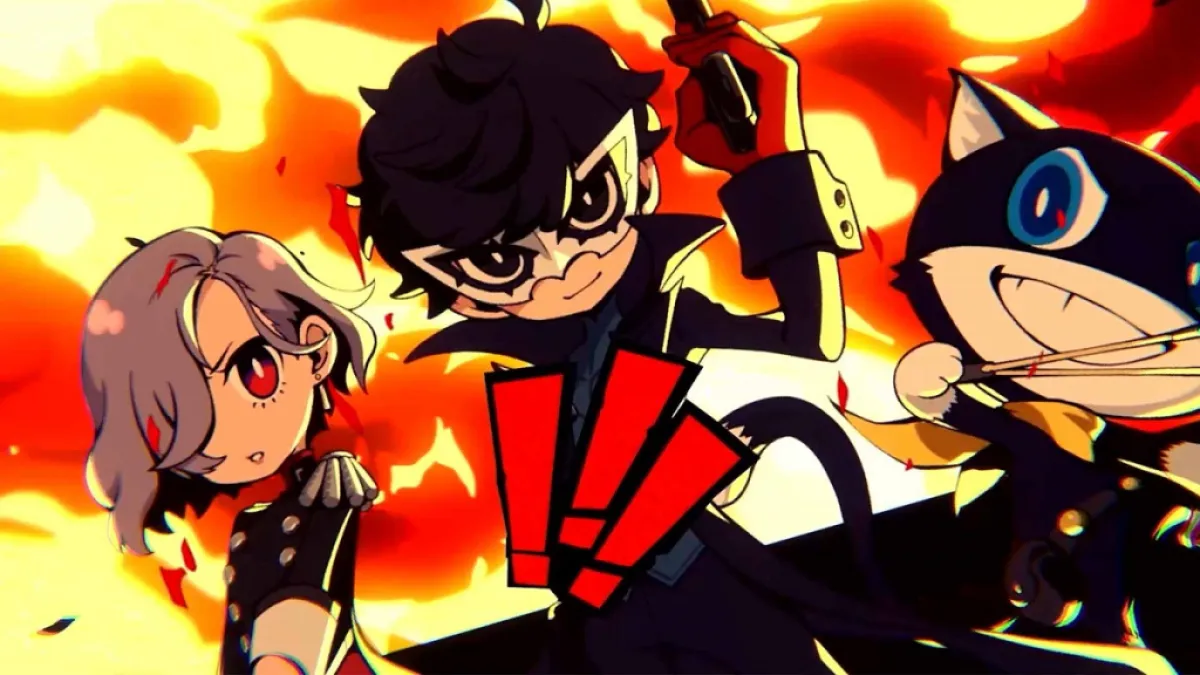
The Persona series is no stranger to spin-offs, so why not make a TRPG based on Persona 5? The game’s biggest strength is its visuals, which have a bright and cartoony aesthetic that helps to separate it from its peers.
Other than that, Persona 5 Tactica is a perfectly fine experience that will scratch any itch that strategy fans may have. It’s not exactly a revolution, but it competently executes its concepts well, it just doesn’t do anything remarkable with those concepts to make it stand out from any other tactical RPG. For as entertaining as it is, it still comes across as inessential fluff and not as fast-paced and satisfying as other Persona 5 spin-offs, but if you wanted more Persona content, you could certainly do worse.
9) Persona Q2: New Cinema Labyrinth (3DS)

Speaking of presentation, Persona Q2: New Cinema Labyrinth decides to go all in on a light-hearted and fun aesthetic that really elevates what could have been just a sequel to Persona Q. The premise has the cast of Persona 5, alongside the cast of Persona 3 (including the P3P female protagonist) and 4, hopping from movie to movie and engaging in humorous and over-the-top situations, like fighting a superhero version of the first boss of Persona 5.
Persona Q2 is notably much less difficult than the original game, and the visuals and music are a step up, making this a more palatable adventure, especially since most of the rougher Etrian Odyssey edges still remain for those not used to them. As the final original 3DS retail release in the States, it’s certainly a solid way for the system to be laid to rest.
8) Persona (PS1, PSP)

The first Persona is an odd one to get ranked among all the games. It’s the first entry in the series, yes, but so many of its mechanics haven’t aged well and the game doesn’t have a lot of the mechanics that the subseries would eventually be known for. For all intents and purposes, it’s a MegaTen game but containing a lot more youthful energy. Thankfully, it’s still a good game.
As a JRPG, Persona is well-built and served as a solid foundation for future entries, with some mechanics that would rightfully be removed, like the grid-based battle system. I’d be remiss if I didn’t also mention the game’s Snow Queen Quest, a huge questline that was originally unavailable in the PS1 version of the game but was so significant that once you undertook it it became the main quest. It’s old-school in a lot of ways, especially in difficulty, but worth it if you want to experience an underrated classic.
Related: Persona 3 Will Never Have a Definitive Version, and That Sucks
7) Persona 5 Strikers (PC, PS4, Switch)
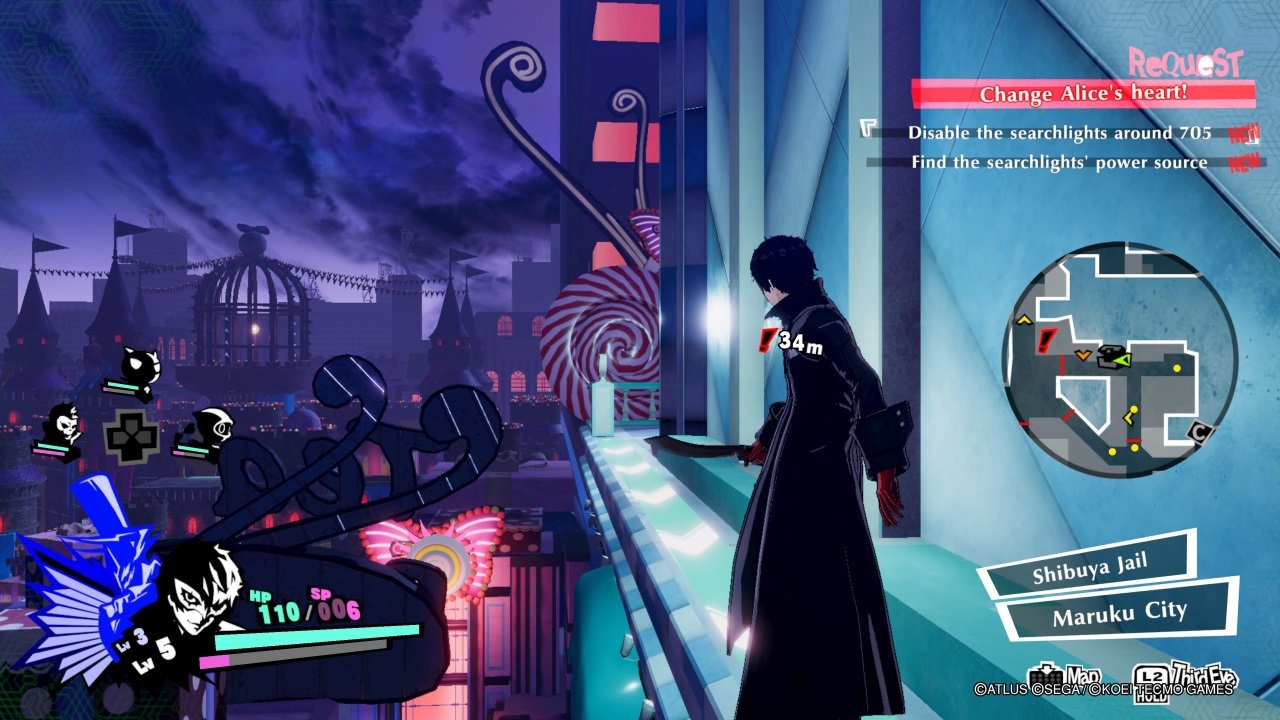
Omega Force has been mixing its Musou-style games with a lot of franchises, but its blend with Persona 5 was probably its most ambitious use of the formula. Integrating a lot of Persona 5’s traits like Persona-fusing and even stealth, Persona 5 Strikers lets you play as the Phantom Thieves as you clear away mobs of Shadows with cartoonish and lavish special attacks in real time.
Thanks to the heavy involvement of P-Studio in this, the style of the game is right up there with Persona 5 and perfectly captures the same energy that the cast had in the original game, making its ranked placement among all these games intriguing. It can’t quite escape all of the trappings of being a Musou game, as it can be pretty repetitive a few hours in, but it’s still one of the best examples of the genre and easy to get your hands on.
6) Persona 2: Eternal Punishment (PS1)

The Persona 2 duology is criminally underrated, even by JRPG standards! The second entry in the duology, Persona 2: Eternal Punishment, was released in the West before the first entry, Innocent Sin, and fans had to wait a decade for the latter to come stateside in the form of a PSP remake. Ironically, a PSP remake of Eternal Punishment never came West.
Since only the PS1 version of Eternal Punishment launched here, it’s arguably the most dated game on this list, but it also has some of the most unique ideas that the Persona series has had, like having an all-adult cast and telling a much more complicated story thanks to the plot being told over two separate games. It’s also noticeably darker than the more modern entries in the series, giving its plot a much-needed burst of freshness and maturity. It’s a shame we never got its PSP remake localized though!
5) Persona 2: Innocent Sin (PSP)
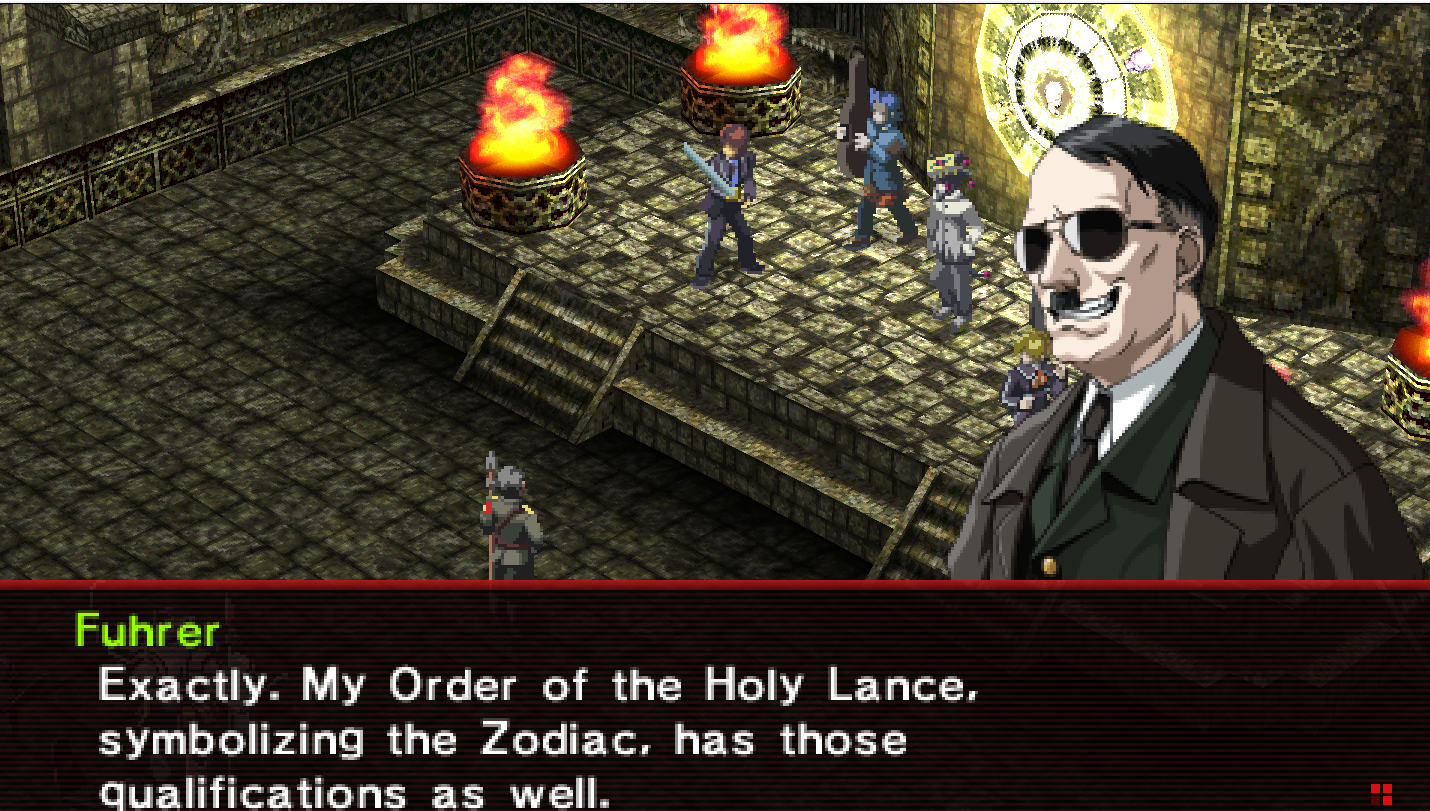
The fact it took fans in the US 12 years to get this game is a crime. While Persona 2: Innocent Sin only marginally improves on some of the mechanics from Persona, those improvements make the game much easier for anyone to play and get invested in.
The grid-based combat is removed, and a new gameplay system, the Rumor System, is introduced, allowing you to spread rumors that can create new items, spawn new demons, or even create new stores. It also features heavily into the plot of Persona 2: Innocent Sin, which goes into some pretty wild territory, like how the main bad guy literally disguises himself as Hitler to evade detection. It’s absolutely nuts, but it leads to a fascinating story that serves as one of the franchise’s best, especially when paired with Eternal Punishment.
4) Persona 3 Portable (PSP, PC, PS4, Switch, Xbox One, Series X)
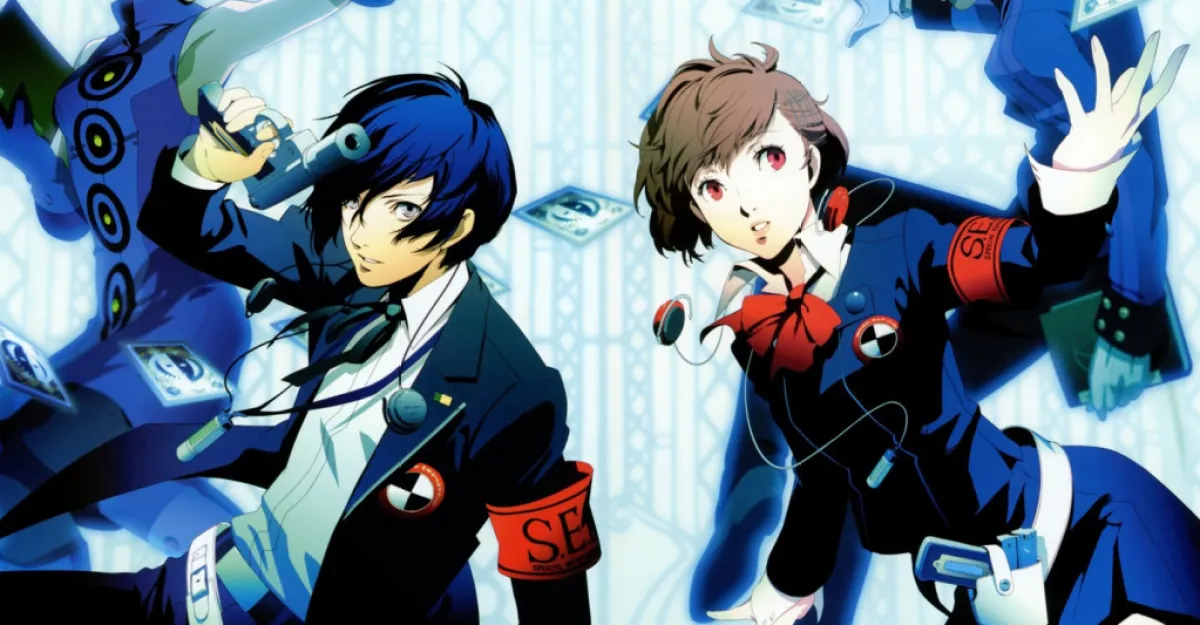
There will always be a fierce debate over which of the modern Persona games is the best when they’re all ranked, but among 3, 4, and 5, 3 may be the weakest. The game is still excellent, sporting an amazing soundtrack (which is doubled in the PSP remake), an infectiously addictive monster system, a plot that goes into several dark and nihilistic places, and one of the most epic final boss battles that actually tests every skill you’ve developed over the course of the game.
However, the core dungeon is ungodly repetitive, with Tartarus sporting over 250 floors, most of which are randomly generated with little to distinguish each floor. Factor in that the plot takes about 30 hours to really get going, and trying to get you invested is a big ask. The limitations of the PSP remake rob the game of some of its stronger cinematic moments too, but the ending is arguably the best in the series.
3) Persona 3 Reload (PS5)

Persona 3 Reload is, in many ways, the definitive version of Persona 3. Not only do you have a lot of the gameplay improvements that are carried over from Persona 5 here, but you have a complete visual overhaul that makes the environment and characters look just as stylish as 5 yet still retaining its own unique aesthetic and tone. If that was all that was added, then that would be fine enough, but Atlus decided to add some new story sequences as well to flesh out the plot. That being said, these new story additions don’t really change all that much and instead lead to a somewhat more bloated game.
Also, it can’t be ignored that Persona 3 Reload hurts from the loss of the additional content present in Persona 3 Portable and Reload is still, at its core, the same Persona 3 experience. However, this is a game we’re talking about, so given the extra gameplay enhancements, while it may not be perfect, Persona 3 Reload is probably the definitive version of the Persona 3 experience. It still may not be perfect, but it’s as good as the story will ever get, and you’ll probably want to play it again after you beat it.
2) Persona 5 Royal (PS4, PS5, Switch, PC, Xbox One, Series X)
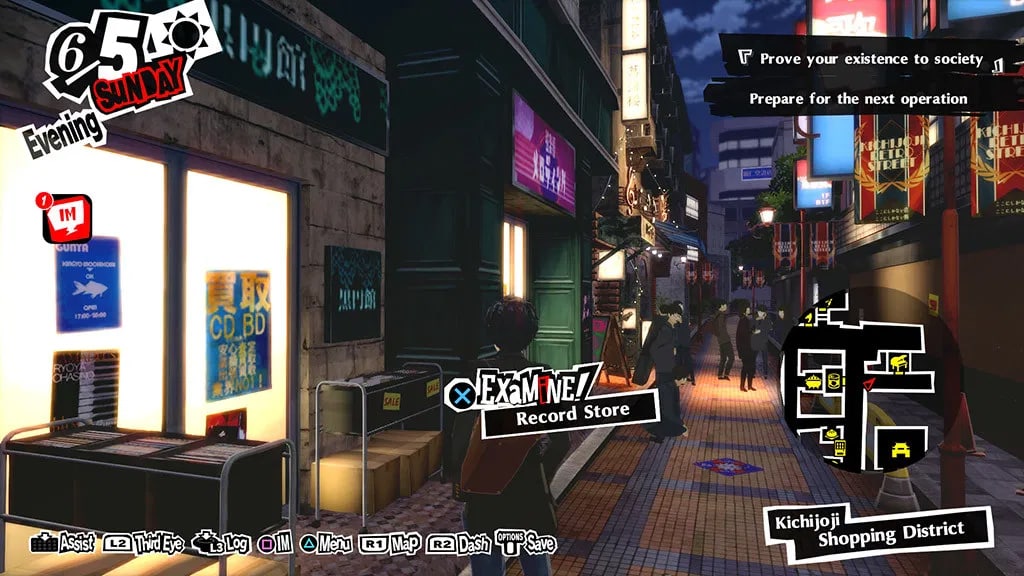
Persona 5 is one of the most critically acclaimed games of the past decade, and it’s hard not to see why. The gameplay is the perfection of concepts and ideas that were established in Persona 3, the cast is instantly likable, the symbolism and imagery are wonderful, the dungeon design makes every level feel like it has a proper identity, and the soundtrack, especially the songs performed by Lyn, is god-tier.
Now just add even more content to it with Persona 5 Royal and you have a game that deserves the praise it gets. It sags a bit in the middle (nobody likes Okumura’s Palace), and you can make the argument that it has a bit too much content, dragging on well beyond 120 hours — but having a lot of a good thing is hardly a negative.
1) Persona 4 Golden (PS Vita, PC, Switch, PS4, Xbox One, Series X/S)
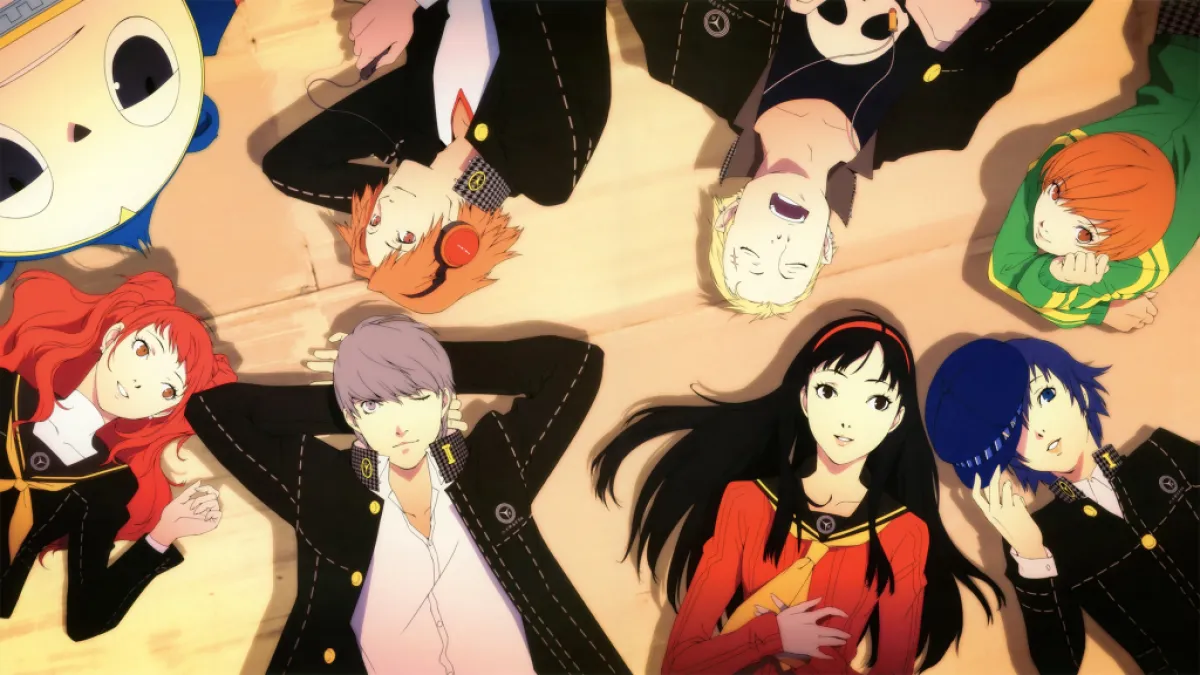
There’s something simply magical about experiencing Persona 4 Golden that no other game in the series can match. The tone of the game is lighthearted and optimistic, allowing you to become acquainted with the best cast in the series and take part in several small events that only serve to endear you to them. While the gameplay isn’t as advanced as in Persona 5, the core is still solid, and Persona 4 offers probably the fairest challenge in the series with a handful of bosses that will punish you if you don’t play by their rules.
And while Persona 5 sags a bit in the middle and Persona 3 takes a while to really get going, Persona 4 hits the ground running with a compelling murder mystery that keeps you engaged the entire time, in no small part thanks to the reinvention of Shadows and using them as an allegorical reflection of the main cast. A lot of what made Persona 5’s plot work is directly drawn from here, and this game does it better. It’s genius, incredibly progressive for its time, and tells a meaningful and great story without overstaying its welcome. Overall, Persona 4 Golden is an easy pick for the best game in the franchise.
And that is all the Persona games, ranked from worst to best!
If you’re looking for more, check out our rankings of every Final Fantasy game.
Update: This article was last updated on March 18, 2024, to include Persona 3 Reload.

